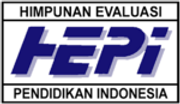The Role of Parents' Socio-Economic Conditions Against Mathematics Learning Outcomes of Madrasah Ibtidaiyah Students
Abstract
One of the factors that influence children's development is the parents' socioeconomic status. Some students are revealed to have mathematics learning outcomes that have not yet reached the Minimum Mastery Criteria (Kriteria Ketuntasan Minimal or KKM). It might occur due to the economic conditions of parents. Therefore, the researchers desired to determine the effect of parents' socioeconomic status on the learning outcomes of students in the fifth-grade of the Madrasah Ibtidaiyah (Islamic Elementary School or MI) Islamiyah Karangpakel. The purpose of this study was to determine the effect of parents' socioeconomic status on student mathematics learning outcomes at Islamiyah Karangpakel. Questionnaires and documentation were used as data collection techniques. The study was conducted by quantitative methods with the type of expost de facto. The study population consisted of students in the fifth grade of MI Islamiyah Karangpakel, with a total of 20 students. The data analysis technique used Simple Linear Regression and was assisted by SPSS 16.0. Based on the calculation of the significance level of 5%, it indicates that the influence of parents' socioeconomic status on student mathematics learning outcomes was in precentage 41,4%, or has sufficient influence while other variables or factors influence the rest. Thus, it can be concluded that the influence of parents' social economic status influences students’ mathematics learning outcomes.
Keywords
Full Text:
PDFReferences
Fathoni, A.H & Masykur, M. (2007). Mathematical Intelegensi. Yogyakarta; Ar-Ruzz Media.
Adina, A., & Colomeischi, T. (2015). The Students ` Emotional Life and Their Attitude toward Mathematics Learning. Procedia - Social and Behavioral Sciences, 180(November 2014), 744-750. Retrieved from http://dx.doi.org/10.1016/j.sbspro.2015.02.192.
Ahmadi, Abu. (1982). Sosiologi Pendidikan. Surabaya: PT Bina Ilmu.
Amir, Almira. (2014). Pembelajaran Matematika SD dengan Menggunakan Media Manipulatif, Forum Paedagogik, 6, 1.
Anni, Chatarina Tri, dkk. (2006). Psikologi Belajar. Semarang: UPT MKK UNNES
Avalos, B. (2011). Teacher professional development in Teaching and Teacher Education over ten years. Teaching and Teacher Education, 27(1), 10-20.
Dalyono, M. (2010). Psikologi Pendidikan. Jakarta: Rineka Cipta.
Hamalik, Oemar. (2009). Kurikulum dan Pembelajaran. Jakarta: PT Bumi Aksara..
Haryanto, Didi. (2015). Filsafat Matematika. Bandung: Alfabeta..
Humaisi, M. Syafiq. (2012). Pengantar Ilmu Pengetahuan Sosial. Ponorogo: STAIN Po Press,.
Ijul, Badrul. (2015). Deskripsi Faktor Sosial Ekonomi Orang Tua dengan Prestasi Belajar Matematika Siswa SMA Negeri 2 Kusambi Kabupaten Muna Barat, Jurnal Penelitian Pendidikan Matematika, 3, 3.
Kurniawan, Deni. (2014). Pembelajaran Terpadu tematik.Bandung: Alfabeta,.
Lestari, Indah. (2013). Pengaruh Waktu Belajar dan Minat Belajar terhadap Hasil Belajar Matematika, Jurnal Ilmiah Pendidikan MIPA, 3, 3-5.
Martorell, P., Miller, T., Santibañez, L., & Augustine, C. H. (2016). Can incentives for parents and students change educational inputs ? Experimental evidence from summer school. Economics of Education Review, 50, 113-126. https://doi.org/10.1016/j.econedurev.2015.12.003
McGrath, K. F., & Van Bergen, P. (2015). Who, when, why and to what end? Students at risk of negative student-teacher relationships and their outcomes, Educational Research Review, Vol. 14, Elsevier Ltd.
Mudzakir, Ahmad & Sutrisno, J. (1997). Psikologi Pendidikan. Bandung: CV Pustaka Setia.
Muslich, Masur. (2010). Penilaian Berbasis Kelas dan Kompetensi. Bandung: Refika Aditama.
Nasution. (2010). Sosiologi Pendidikan. Jakarta: Bumi Aksara.
Nagel, I., & Lemel, Y. (2019). Poetics The effects of parents’ lifestyle on their children ’ s status attainment and lifestyle in the Netherlands. Poetics, 74, 101357. https://doi.org/10.1016/j.poetic.2019.03.002.
Noor, M. Arifin. (1997). Ilmu Sosial Dasar. Bandung: CV Pustaka Setia.
Nugroho, Tisar Adi. (2017). Pengaruh Gaya Belajar, Motivasi Belajar, dan Kondisi Ekonomi Orang Tua pada Hasil Belajar, Jurnal Pendidikan, 6,1, 15-26.
Nursalam. (2016). Diagnostik Kesulitan Belajar Matematika: Studi pada Siswa SD/MI di Kota Makassar. Lentera Pendidikan,19.
Observasi dilakukan pada 11 Januari 2019, pukul 09.00 di MI Islamiyah Karangpakel.
Patmi, Wening Rahayu. (2011). Analisis Intensitas Pendidikan oleh Orang Tua dalam Kegiatan Belajar Anak, Status Sosial Ekonomi Orang Tua terhadap Motivasi Belajar dan Prestasi Belajar Siswa, Jurnal Pendidikan dan Pembelajaran, 18, 1.
Sudarsana. (2018). Implikasi Kondisi Ekonomi Orang Tua Terhadap Motivasi dan Hasil Belajar Siswa. Jurnal Pendidikan, 4, 34-48.
Soejadi. R. (1999). Kiat Pendidikan Matematika di Indonesia, Jakarta: Drektorat Jendral Pendidikan Tinggi.
Sugiono. (2006). Metode Penelitian Pendidikan Pendekatan Kuantitatif, Kualitatif, R & D. Bandung: Alfabeta.
Sukmadinata, Nana Syaodih. (2005). Landasan Psikologi Proses Pendidikan. Bandung: PT Remaja Rosdakarya.
Sulistyorini. (2009). Evaluasi Pembelajaran. Yogyakarta: Teras.
Susanto, Ahmad. (2013). Teori Belajar dan Pembelajaran di Sekolah Dasar. Jakarta: Prenadamedia Group.
Sudjana, Nana. (2005). Penilaian Hasil Proses Belajar mengajar. Bandung: Remaja Rosdakarya.
Syahrozi, Ahmad. (2017). Pengaruh Motivasi dan Status Sosial Orang Tua Siswa terhadap Hasil Belajar Siswa di MIN 2 Batu, Thesis, UIN Malik Ibrahim Malang.
Tirtarahardja, Umar. (1998). Pengantar Pendidikan. Jakarta: Rineka Cipta.
Triwiyanto, Teguh. (2015). Pengantar Pendidikan. Jakarta: PT Bumi Aksara.
Muhammad, Thobari & Mustafa, Arif. (2003). Belajar dan Pembelajaran Pengembangan Wacana dan Praktik Pembelajaran dalam Pengembangan Nasioanal. Yogyakarta: Ar Ruzz Media.
DOI: https://doi.org/10.18326/mdr.v11i2.136-158
Refbacks
- There are currently no refbacks.
Copyright (c) 2019 Anna Fista Nugraheni, Avita Febri Hidayana

This work is licensed under a Creative Commons Attribution 4.0 International License.

This work is licensed under a Creative Commons Attribution 4.0 International License.
Program Studi Pendidikan Guru Madrasah Ibtidaiyah (PGMI)
Universitas Islam Negeri (UIN) Salatiga, Indonesia
Jl. Lingkar Salatiga Km. 2 Pulutan, Sidorejo, Kota Salatiga, Jawa Tengah 50716,
Telp. (0298) 323706 – Fax. (0298) 323433
Technical Support: jurnalmudarrisa@iainsalatiga.ac.id
P-ISSN: 2085-2061
E-ISSN: 2541-3457



